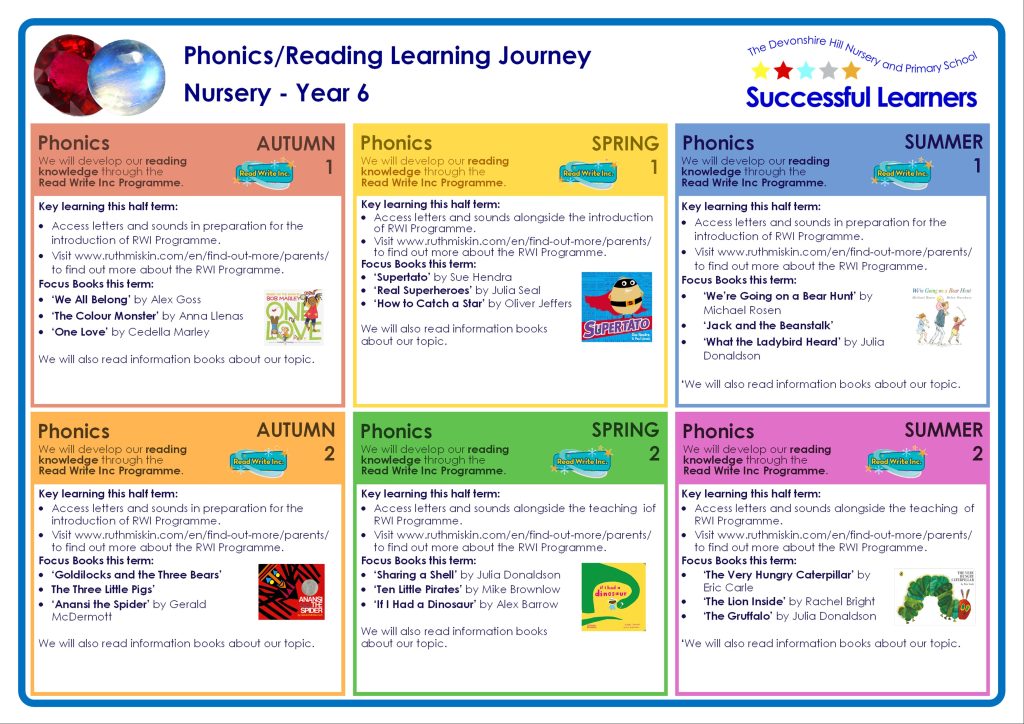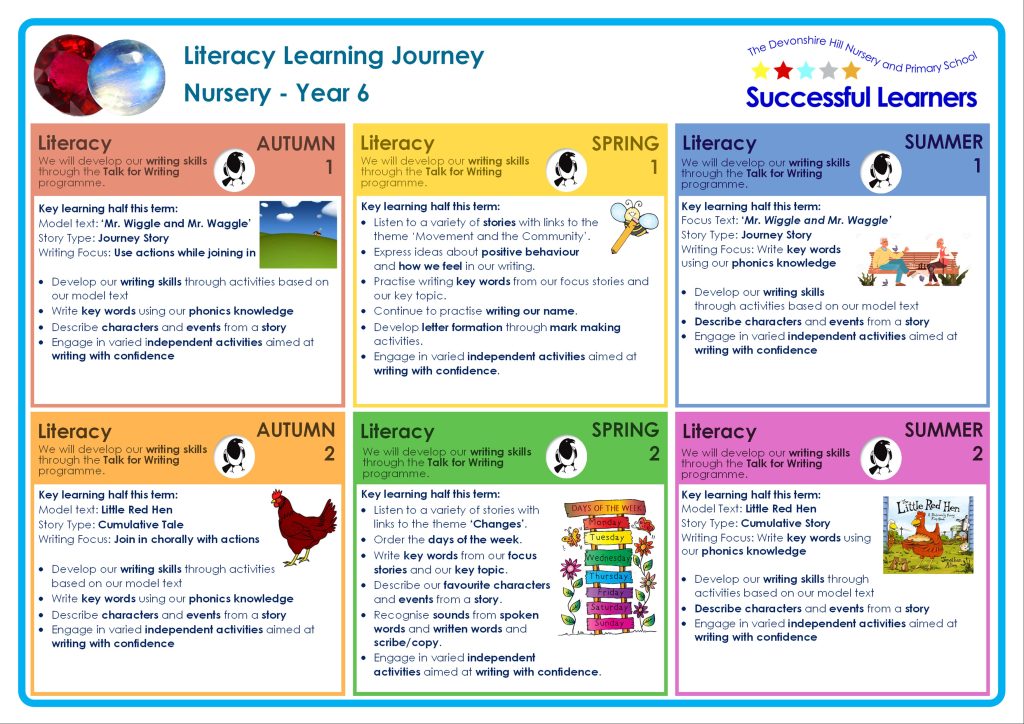English
Click on the images below to view our Reading and Writing Learning Journey:
Our English Curriculum
At The Devonshire Hill Nursery and Primary School we follow the National Curriculum for English. Below are details of specific elements of our practice:
Phonics
Phonics is taught daily in Reception and Year 1. Children build up to being taught how to sound and blend unfamiliar printed words quickly. The school follows the Letters and Sounds programme in Nursery and the children then transition onto the Read, Write Inc. programme in preparation for Reception.
Reading Scheme & Guided Reading
Reading is taught every day from Year 1 – Year 6. The school uses the Collins Big Cat scheme to plan and teach targeted guided reading lessons. All children are heard read at least once a week by the class teacher during these sessions. They then take home their reading book to practice across the week. Children in Reception, years 1 & 2 take home three books, each week, their reading book, a book of a similar challenge and a book of their choice. Children in years 3-6 take home their reading scheme book and a library loan book. Once a child has completed the reading scheme and are confident, fluent readers they then access books freely from the school library.
Reading for pleasure
Children have many opportunities to read for pleasure at school. All children have regular access to a well-stocked library whereby they can loan a book of their choice to read in class and take home to read. All classes have books in their classroom that support the learning across all subjects each half term. So there is always something for everyone to enjoy!
Reading comprehension
Teachers model a range of strategies in English lessons to enable all pupils to effectively comprehend text. We use a high quality key focus text for each half term that provides the starting point for Reading Comprehension lessons. All children in Years 3-6 are taught reading comprehension using the Destination Reader Programme.
Handwriting
We encourage children to take pride and care in the presentation of their writing. From the beginning of Reception to the end of Year 2 we provide opportunities for children to develop skills to enable them to produce work that is presented well. The target for children in Key Stage 2 is to produce a fluent, consistently formed style of fully cursive handwriting with equal spacing between the letters and words.
Writing
Writing is taught through the Talk for Writing approach. Talk for Writing allows children to verbally practise the essential language required for a specific subject before attempting to read and analyse it. Engaging in enjoyable exercises that assists children in familiarising themselves with the language’s rhythm, followed by collaborative writing sessions that demonstrate the art of crafting their own text, helps children develop the ability to write in the same style.
Spelling, punctuation & grammar (SPAG)
SPAG lessons take place daily in Years 1 – 6, as part of the Talk for Writing approach and children are taught to identify, apply and evaluate concepts set out in the National Curriculum.
Spoken language
We promote children’s’ confidence and competence in spoken language and listening skills throughout the curriculum. We maximise opportunities to ask pupils to explain their understanding of books and other reading materials, and to talk through their ideas before they write. Children are always encouraged to speak in full grammatically correct sentences.
Literacy development in The Early Years Foundation Stage
In The Early Years Foundation Stage Literacy development involves encouraging children to read and write, both through listening to others reading, and being encouraged to begin to read and write themselves. Children are given access to a wide range of reading and writing materials both in the indoor and outdoor environments and we actively promote early development and fostering of these key skills.


